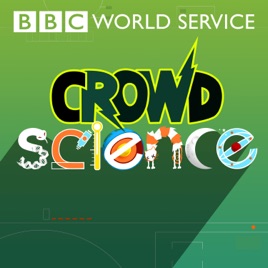
Advertise on podcast: CrowdScience
Rating
4.7 from
Country
This podcast has
300 episodes
Language
Publisher
Explicit
No
Date created
2016/11/04
Average duration
29 min.
Release period
8 days
Description
We take your questions about life, Earth and the universe to researchers hunting for answers at the frontiers of knowledge.
Podcast episodes
Check latest episodes from CrowdScience podcast
Why do we have wisdom teeth?
2024/02/23
Why do humans have wisdom teeth if so many of them get removed soon after they appear?
Wisdom teeth, the third molars in the back of our mouths, are so called because they normally appear in late teenage, early adulthood – the time in life we supposedly have learned some wisdom. But around 25% of people don’t develop all four. Of those that do emerge, it is not uncommon for them to appear at nasty angles, jutting into the tooth next door causing potentially dangerous infections and pain. Because of this, for decades many people have them surgically removed.
Listener Khaleel was preparing to have his remaining wisdom teeth removed when he wrote to CrowdScience to ask about them. Given that they can seem to cause more harm than good, why has evolution resulted in these troublesome teeth? But many people have perfectly uneventful relationships with their wisdom teeth, so have we perhaps removed more than we needed to over the years?
Anand Jagatia chews it over with the help of surgeons and dentists to try to extract the truth – why DO we have wisdom teeth?
Featuring:
Tanya M Smith, Professor in the Australian Research Centre for Human Evolution at Griffith University, Australia
Patrick Magennis, Consultant Oral & Maxillofacial Surgeon at University Hospitals Aintree, Liverpool UK
Verena Toedtling, Dentist and Specialist Oral Surgeon, UK
Presented by Anand Jagatia
Produced by Alex Mansfield
more
What time was the first clock set to?
2024/02/16
When the first person set the very first clock, how did they know what time to set it to? This question, from listener Chris in the UK, sends CrowdScience off on a quest into the history of timekeeping.
From sundials to water clocks, from uneven hours to precision seconds determined by the vibration of an atom, we examine how we came to measure time. We visit possibly the oldest working mechanical clock in the world to discover how its time was originally set; and hear how the time we go by today is not quite the same as it was in the past.
Will all this be enough to solve Chris' question, or has he stumped the team?
Featuring:
Ian Westworth, Clock Mechanic
Dr. Chad Orzel, Associate Professor of Physics and Astronomy at Union College
Anna Rolls, Curator of Clocks, Clockmakers’ Museum
Peter, Guide, Salisbury Cathedral
Dr. Jun Ye, Physicist at NIST (National Institutes of Standards and Technology) and The University of Colorado, Boulder.
Presenter: Caroline Steel
Producer: Margaret Sessa-Hawkins
Editor: Cathy Edwards
Production Co-ordinator: Jonathan Harris
Studio Manager: Jackie Margerum
(Photo:Stopwatch on red background. Credit: Martin Poole / Getty Images).
more
When will the next earthquake hit?
2024/02/09
In 2011, CrowdScience listener Amanda survived the devastating earthquake in Christchurch, New Zealand.
It arrived unannounced - as all earthquakes do - leaving her with no time to prepare a response. So Amanda wants to know whether science will ever be able to give us advance warning of quakes.
To explore her question CrowdScience heads to New Zealand to meet listener Amanda, as well as the brains behind the country’s earthquake forecasting models. We dig in a field for thousand-year-old tectonic clues that could help us understand when the next earthquake might strike. But even if we could get a head start against a quake, would we respond in the right way?
Please note: earthquake response advice varies by location. Please check local guidance and individual building procedures.
Featuring:
Nicola Litchfield, Principal Scientist in Paleoseismology at GNS, Wellington, New Zealand
Matt Gerstenberger, Seismologist and leader of the National Seismic Hazard Model, GNS, Wellington, New Zealand
Andy Howell, University of Canterbury, New Zealand
Lauren Vinnell, Lecturer in Emergency Management at the Joint Centre for Disaster Research at Massey University
Presenter: Caroline Steel
Producer: Emily Bird
Editor: Cathy Edwards
Production: Jonathan Harris, Jana Holesworth
Sound Engineer: Steve Greenwood
(Photo: Earthquake damage in Christchurch. Credit: John Crux Photography)
more
Why do we daydream?
2024/02/02
Have you ever been through a romantic break up, unable to shift the ex from your thoughts? You are, obviously, not alone…
Listener Elkin, experienced just that. But rather than wallowing in self-pity, he sought out an explanation. Where better to get it, than from CrowdScience. Now, Alex Lathbridge is putting on his thinking cap to find out why we daydream?
Presenter: Alex Lathbridge
Producer: Harrison Lewis
Editor: Martin Smith
Production: Jonathan Harris
Featuring:
Giulia Poerio, Lecturer in Psychology, University of Sussex.
Kalina Christoff, Professor of Psychology, University of British Columbia.
Eli Sommer, Israeli Professor of Clinical Psychology, University of Haifa.
Sophie Forster, Reader in Psychology, University of Sussex
(Photo: Man daydreaming surrounded by clouds. Credit: jacquesdurocher / Getty Images)
more
How should we measure cleverness?
2024/01/26
Presenter Marnie Chesterton and the team pit their wits against a multitude of mind-bending puzzles from an old TV gameshow - all in the name of answering a question from Antonia in Cyprus: how do we work out how clever someone is? Is IQ the best measure of cleverness? Why do we put such weight on academic performance? And where does emotional intelligence fit into it all?
In the search for answers Marnie and the team are locked in rooms to battle mental, physical, mystery and skill-based challenges, all against the clock.
Unpicking their efforts in the studio are a global team of cleverness researchers: Dr Stuart Ritchie from Kings College London, Prof Sophie von Stumm from York University and Dr Alex Burgoyne from Georgia Institute of Technology in the US.
They are challenged to face the toughest questions in their field: Why do men and women tend to perform differently in these tests? Is our smartness in our genes? And what about the Flynn Effect – where IQs appear to have risen, decade after decade, around the world.
Producer/presenter: Marnie Chesterton
Editor: Richard Collings
Production co-ordinator: Jonathan Harris
(Photo Man doing puzzle. Credit: Getty Images)
more
Were humans ever semi-aquatic?
2024/01/19
What evidence is there for a semi-aquatic period in human evolutionary history? That’s the question that’s been bothering listener Dave in Thailand. He thinks our lack of hair and love of water might indicate that, at some point, we were more water-based than we are now. But what does science have to say on the matter?
The theory that our ape ancestors returned to the water for a phase in our evolutionary history is a controversial idea that most scientists disagree with.
Anand Jagatia chats to Dr Melissa Ilardo, assistant professor at the University of Utah, about our dive reflex - a physiological response we display when submerged underwater, which helps direct oxygen towards vital organs. But this is not a response that is unique to humans - it is found in all mammals. Experts say it developed long before all apes split off in the evolutionary tree.
To find out more about the theory itself Anand hears from John Langdon, emeritus professor at the University of Indianapolis. He explains why the aquatic ape theory is not generally accepted by anthropologists, what the fossil record can tell us about our evolutionary path and why evolution is much more complex than the aquatic ape hypothesis suggests.
While there may be little evidence of a semi-aquatic period in our evolutionary past, there are some communities around the world that have adapted to utilising their watery environments in more recent evolutionary history.
Anand speaks to Dr Nicole Smith-Guzman at the Smithsonian Tropical Research Institute who has found evidence that ancient populations in Panama were habitually diving in the sea for shells and seafood. She explains how she can piece together evidence from different sources to detect the activity of ancient populations. And Dr Melissa Ilardo explains how evolutionary pressure can cause physical changes in isolated communities, as our bodies ultimately adapt to help us thrive in more watery environments.
Producer: Hannah Fisher
Presenter: Anand Jagatia
Editor: Richard Collings
Production co-ordinator: Jonathan Harris
Sound engineer: Jackie Margerum
(Photo: Woman swimming underwater. Credit: Petrelos/Getty Images)
more
Can planting trees solve the climate crisis?
2024/01/12
Our question this week comes from a father and his two young boys.
They want to know whether it’s possible to plant enough trees to soak up all the extra carbon we are putting into the atmosphere?
The quest to find answers takes us to a remote reforestation project in the Carpathian Mountains in Romania which could be a model for other projects looking to tackle the climate crisis through reforestation.
We speak to experts to find out how much tree planting and reforestation can do in helping combat the climate crisis.
Presenter: Caroline Steel
Producer: Margaret Sessa-Hawkins
Editor: Richard Collings
more
Will electric cars help solve noise pollution?
2024/01/05
Noise pollution from vehicles in the public space has a huge impact on human health. But as the world switches to quieter electric-powered means of transport there’s a debate about whether we will actually see any noticeable improvement to our quality of life.
Discovering more than just engineering solutions to the problem, CrowdScience visits one of the world’s loudest cities, Mumbai in India. It is a place where noise has become a way of life. But is that all about to change?
Presenter: Alex Lathbridge
Producer: Richard Walker
Production co-ordinator: Jonathan Harris
Editor: Richard Collings
more
2023 Year End Extravaganza, Part 2
2023/12/29
Welcome to Part 2 of our year-end extravaganza and the final episode of 2023!
We’ve had a brilliant year hunting down the answers to your science questions - on everything from food and phobias to friction and flying - and in this episode presenter Anand Jagatia is revisiting some of the best stories we covered. We’re bringing you some extra juicy bonus content that we couldn’t fit in to those shows first time round.
Hannah Fisher joins Anand to revisit an episode she produced about the microbiome, the community of tiny organisms living both on and inside us. During that show Hannah took presenter Caroline Steel to a microbiome museum in the Netherlands called Micropia. And one thing from Micropia that never got aired was the kiss-o-meter, a device that measures how many microbes you exchange when you kiss! Micropia curator Jasper Buikx explains the science behind the kiss-o-meter, and then Caroline Steel tries it for herself!
Microbes aren’t just living on and in humans and animals - they’re pretty much everywhere in our environment. And to illustrate this CrowdScience producer Marijke Peters brings Anand a bonus interview with a professional surfer who’s also a bioscientist.
Cliff Kapono undertook a scientific project travelling around the world to take microbiome samples from surfers in different countries. He discovered a fascinating global connection. Surfers are linked together by microbes on their skin that they get from the water around them. Intriguingly, he describes how this might affect our perception of who we are as humans.
Caroline Steel updates us on an interview she did with indigenous Australian astronomer Peter Swanton. Peter appeared on CrowdScience telling an ancient Australian folktale about a man who sacrificed himself to save his brother. The story, which has been handed down through several generations, provides possible evidence for an early observation of a supernova. You can hear that story in the episode “Why is the sun at the centre?”
Today we hear two extra stories that originally got cut from the broadcast due to time constraints. They are beautiful and poignant tales that reveal the depth of indigenous scientific achievement and the extraordinary significance of the night sky.
Presenter: Anand Jagatia
Producer: Phil Sansom
Editor: Richard Collings
Production Co-ordinator: Jonathan Harris
Studio Managers: Tim Heffer and Cath McGee
Featuring:
Jasper Buikx, scientific curator & spokesperson, ARTIS-Micropia
Prof. Cliff Kapono, surfer & molecular bioscientist, School of Ocean Futures at Arizona State University
Peter Swanton, indigenous research associate, Australian National University
more
2023 Year-End Extravaganza, Part 1
2023/12/22
Welcome to Part 1 of CrowdScience’s year-end extravaganza! It’s an extra-festive episode this week. For those who celebrate it, Christmas is the perfect time to pause and look back at the year just gone. Here on CrowdScience we’ve had a great 2023: we answered dozens of listener questions, ranging from climbing plants and ostriches to panic attacks and the weight of the internet.
This week presenter Anand Jagatia magically appears with a Santa’s sack full of special features. We’re catching up with some of our favourite guests from the past year and answering some of the extra questions that we never got the chance to cover.
First up we hear from presenter Tim Clare who we first heard in the episode “Why do some people have panic attacks?” He takes Anand through his new book – it's about board games: why we play them, how they’ve existed throughout history and what he’s learned about himself in the process of writing it.
Then it’s time for a bonus question. The CrowdScience team often get questions about noise pollution. One listener got in touch to ask whether the transition to electric vehicles will reduce this noise. Acoustic scientist Kurt Fristrup and epidemiologist Erica Walker give their perspectives on this question, and how sound and noise can sometimes be very different things. CrowdScience listener Marie - who originally starred in an episode about why she doesn’t have any sense of time - returns. Since the programme she has been speaking to psychologists about her problem and tells Anand what more she’s learnt.
We received another bonus question after a show in 2023 about AI: why can’t artificial intelligence be designed to explain it’s decisions? Producer Phil returns to data scientist Briana Brownell from the original episode to ask her why AI decision making is so very complex.
Finally, as it’s the season for holiday music, we’re asking what makes the genre so distinctive? Composer Jane Watkins - who originally created the sound of a panic attack for a CrowdScience episode - brings in her musical keyboard to demonstrate what makes a Christmas song so specifically ‘a Christmas song’.
It’s all topped-off with the premiere of a happy and heart-warming song performed by the CrowdScience Christmas Choir – a little gift for our loyal listeners.
Presenter: Anand Jagatia
Producer: Phil Sansom
Editor: Richard Collings
Production Co-ordinator: Jonathan Harris
Studio Managers: Tim Heffer and Cath McGhee
Featuring:
Tim Clare, author/poet/podcaster
Dr. Kurt Fristrup, acoustic scientist, Colorado State University
Prof. Erica Walker, RGSS Assistant Professor of Epidemiology, Brown University School of Public Health
Marie Bergholtz
Briana Brownell, data scientist
Jane Watkins, composer
more
Are seeds alive?
2023/12/15
Seeds are crucial to human existence – we eat them, we grow them and then we eat what they become. But what is a seed and how come it can sit there doing nothing for ages and then suddenly, when the conditions are right, burst into a plant?
That’s what CrowdScience listener Anke has been wondering. She runs an aquaponic salad farm near Stockholm in Sweden and she germinates thousands of seeds every week. With a bit of moisture and light, seeds that have been dormant for months can become leafy greens in just a few weeks. So are seeds alive, are they on some kind of life support, or is something else going on?
Presenter Caroline Steel sets off to Sweden to meet Anke, before heading for the Nordgen seed bank near Malmö. There she discovers how seeds being stored for future generations are tested for viability, and wonders what’s going on inside a seed that allows it to remain asleep before suddenly coming to life. How does a seed decide that the time is right?
We hear about one of the world’s longest running science experiments - a real-life treasure hunt that takes place every twenty years in Michigan, USA. Plant biologists tramp through the snow looking for bottles of seeds that were buried nearly a century and a half ago. Once found they try to germinate them. What superpowers does a seed need to be able to last that long?
Caroline also meets the woman who tried to grow date seeds that had been discarded at the palace of Herod the Great 2000 years ago, and ended up with previously extinct trees that produce delicious fruit. Surely a seed can’t have been alive for that long. Or can it?
Contributors:
Anke Johanna van Lenteren, Johannas Stadsodlingar, Sweden
Johan Axelsson, Nordic Genetic Resource Center, Sweden
Prof George Bassel, University of Warwick, UK
Dr Grace Fleming, Michigan State University, USA
Dr Sarah Sallon, Hadassah Medical Center, Israel
Presenter: Caroline Steel
Producer: Ben Motley
Editor: Richard Collings
Production Coordinator: Jonathan Harris
(Photo: Hands holding spinach seeds. Credit: Vince Streano / Getty Images)
more
Where does our fat go when we exercise?
2023/12/08
If, like this week’s Crowdscience listener Lili, you enjoy working out in the gym, you may have wondered where your fat disappears to when you exercise?
The short answer is that we convert it to energy that powers a whole range of physical processes - from breathing to walking as well as lying down and doing nothing. But the science behind energy expenditure is a little more complicated than that.
Presenter Anand Jagatia jumps on an exercise bike to have his metabolism measured and learns that he may be relying on an entirely different source of fuel as he works up a sweat.
Is all that hard work worth the effort it involves? Recent research suggests there is a limit to the number of calories humans can burn and that engaging in physical activity is not always a sure-fire way to keep trim.
So if working out is not the best way to lose weight, how about harnessing our own fat to tackle the complications of obesity? It used to be thought brown fat was exclusive to babies (and bears) but we now know adults have some of it too. Anand discovers that it appears to play a vital role in combatting a range of chronic diseases including hypertension and diabetes.
Presenter: Anand Jagatia
Producer: Marijke Peters
Editor: Richard Collings
Production co-ordinator: Jonathan Harris
(Photo: Person squeezing their tummy. Credit: Getty Images)
more
Podcast reviews
Read CrowdScience podcast reviews
itsdavie
2023/10/30
Quip
Quip
blindGuyJoe
2023/04/09
Good Show!
Good Material & Greatt Presentation
6176423263
2023/05/18
so good
it is so good
drgjbfr
2022/11/16
Expanding thoughts
I’m a first time new mom and when I get up 5 times a night to nurse my baby, I turn on this show and the episodes keep me awake with curiosity and int...
more
Ray mesopotamia
2022/03/21
Listen if you don’t need to have to.
It’s really great. But I like questions and don’t need a big reveal. Also, please stop the “it’s so nice out there…” ad. It makes my skin crawl
JustSayN4RF
2021/09/25
Fascinating and Fun!
I love this podcast. It hooks me every time. I love how they include questions from all ages and all over the world. Great podcast for the whole fa...
more
Bee-Sorry
2021/10/30
JB
Loaded with bias.
nys_emt
2021/07/17
Fun and interesting
I love Crowdscience! It’s a fun, energetic, and educational podcast. I look forward to new episodes!
Aio1972
2021/07/02
Great show
Great topics that are both interesting and easy on the ear.
The Baron Fluffy
2021/05/16
Crowd Science
This is a fantastic and innovative podcast, entertaining, informative, great presenters …. Long may they continue to answer the questions of our time ...
more
Podcast sponsorship advertising
Start advertising on CrowdScience & sponsor relevant audience podcasts
You may also like these science Podcasts
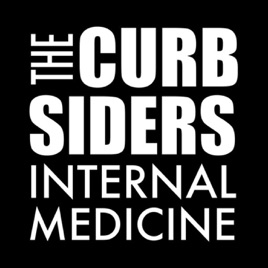
4.8
3001
477
The Curbsiders Internal Medicine Podcast
The Curbsiders Internal Medicine Podcast
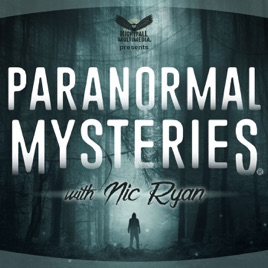
4.6
1674
462
Paranormal Mysteries Podcast
Paranormal Mysteries Podcast | Unexplained Supernatural Stories
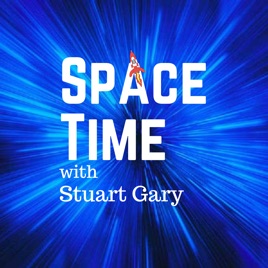
4.3
254
1009
SpaceTime with Stuart Gary
Stuart Gary
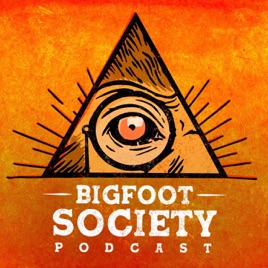
4.5
243
385
Bigfoot Society
Jeremiah Byron
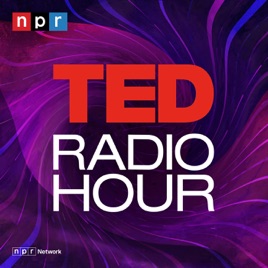
4.3
20160
326
TED Radio Hour
NPR
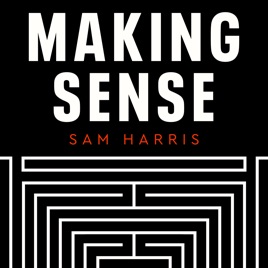
4.6
25038
379
Making Sense with Sam Harris
Sam Harris

5
62
163
Real Organic Podcast
Real Organic Project
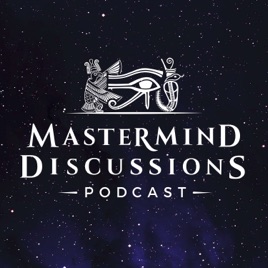
4.7
264
19
Mastermind Discussions Podcast
Matthew LaCroix
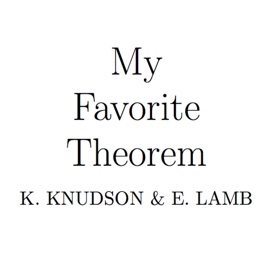
4.8
95
91
My Favorite Theorem
Kevin Knudson & Evelyn Lamb

5
1
1
Study Algebra- Math Made Easy!
AL Academy



